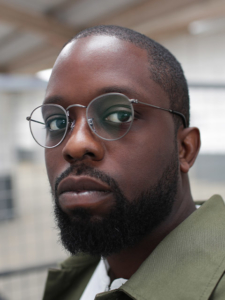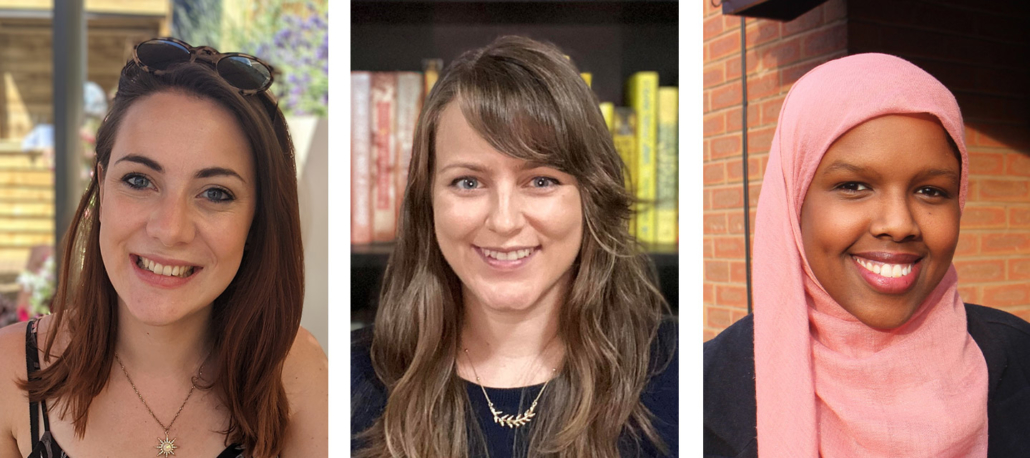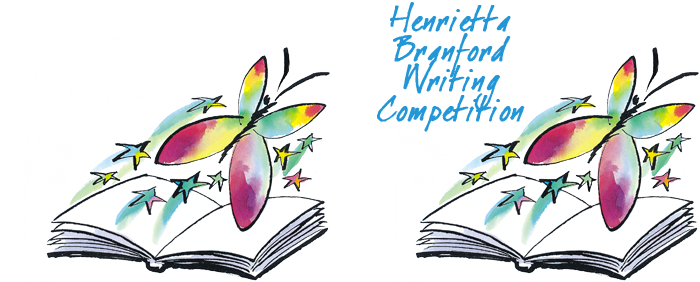Q&A with author Femi Fadugba

The Branford Boase Award judges loved the authenticity of the voices in your book. How did you achieve that do you think?
I think it was a combination of living in Peckham for many periods of my life (so I knew the voice first-hand) but also from living in a bunch of other places, which meant I knew which bits of the experience would be harder to translate and how to make the story connect with kids from all over.
What was the thing you most enjoyed about the editorial process?
The opportunity to take the quality of my story to the next level. Then the next. Then the next (we did a few drafts in the end!). Emma, Stephanie and Asmaa got my book from the jump, so I never felt like it was a ‘me vs. my editors’ situation. I’ve got more blind spots than I can count (by definition) so it’s transformative having that collective of experience, taste, and (very gentle) guidance to bring the best out of me.
There is a lot of science in your book – how did you balance being scientist and author?
I think the first draft of the book had as many lines of maths as words! If I’m being real though, that was mostly because I lacked confidence on the author side of things. But as I gained more experience, I started to realise there was a deeper story here, one about facing and healing past traumas. And that I couldn’t hide behind the numbers.
You’ve said that writing was something you could learn and didn’t have to be born with. How did you go about learning the skill of writing?
I basically learned how to write in order to write this book. About 95% of what I learned was from a) reading books on how to write b) writers’ Youtube and c) brutally honest feedback from mates/writers/readers. I really enjoy learning (which maybe helps), and still have lots of growth left in the craft.
What advice would you give to debut writers?
- Make it your daily goal to get 500-1,000 very crappy words down on paper. At first, it feels terrible being so imperfect. But soon enough, you’ll have a finished book you can perfect.
- Have a good, deep think about what you want to say to the world. Your book is your pulpit; we are in your congregation – tell us what’s really on your heart! Tell us how to get through what you’ve been through!
- Have fun with your writing. If you’re enjoying yourself while writing, we’ll feel the same when we read it.
Q&A with editors Emma Jones, Stephanie Stein, and Asmaa Isse

What was it about Femi’s writing that most excited you when you first read it?
Stephanie: Femi’s voice is totally propulsive—I kept turning pages as if I was the one facing a ticking clock in a time-travel thriller. He has a gripping combination of killer pacing and vivid characters, and I have to give a special shout-out to his sense of humour; both of this book’s protagonists have great jokes!
Asmaa: There was so much I loved about Femi’s writing! He is such a masterful storyteller, skilfully delivering a spectacular blend of electrifying time-travel, a vivid South London setting and proper nail-biting, heart-racing adventure. I was hooked from that first chapter, where it starts with one of the wittiest and attention-grabbing sentences I’d read so far. The voice was so immediate and engaging, and there was something about Esso’s world that felt like home – which I hadn’t felt before. I flew through the whole thing in one sitting and then had to immediately text Emma to work through all the emotions I was feeling!
Emma: The voice – immersive, hilarious, thoughtful and smart all at the same time. I loved the sound of the pitch (time travel is a big plus for me) but reading the first page, I immediately knew we were in the hands of an exceptional debut author.
What were the main things you worked on with him as editors?
Stephanie: We spent a lot of time fine-tuning plot, pacing, and worldbuilding elements, particularly in developing what Rhia’s world would look like, 15 years from now. I’m especially proud of the work Femi put into deepening the emotional presence of the main characters—making sure the high stakes of the plot and the real-world science involved always felt emotional and personal to each of them.
Asmaa: It was mostly around Rhia’s storyline. Esso’s world felt so tangible, thrilling and we really cared about everything that was happening to him. Rhia was an equally fantastic character, and we wanted to have the same depth of feeling for her and get a deeper sense of her world. It was just a case of pulling more from those chapters. Femi was really collaborative and creative – he even somehow managed to use data and spreadsheets in the editing process. A first for us!
Emma: Considering the complex combination of science and adventure in the novel, we worked with Femi to ensure there was a clear thread leading the reader through the book, as well as ensuring that the scientific concepts were accessible while also providing extra content for anyone who wanted it. This is a dual-POV book, which meant Femi had to navigate different timelines and ensure the loose ends were tied up in the final act – no mean feat, but he managed it expertly, with the help of his very on-brand editorial spreadsheet!
What are the challenges of editing science fiction and particularly stories that move across time?
Stephanie: Managing a time-travel plot is always an ambitious undertaking! Particularly with a story that alternates between present and future like this one, it’s key to make sure the events of each timeline resonate and bounce off of each other in compelling ways—that an action taken in one is answered in the other, and there are rewarding parallels for the reader to discover.
Asmaa: The exciting thing about science fiction is that there is a lot of scope to suspend disbelief and be really imaginative. But I think one challenge with time travel stories can lie in trying to balance the logic with a plot that is still easy to follow. As an editor, it’s important to have a full grasp of the world and all its mechanics so you can understand it in the context of the characters and the story. Luckily in this case, Femi had already done all the hard thinking, so the time travel aspect was seamlessly woven in without feeling intimidating. So, we were able to focus more on the general aspects like plot and pace.
Emma: What I love about Femi’s work is that the concepts are rooted in real science: he takes fascinating topics and maps them onto a compelling character-driven human story, giving the reader a convincing reason to care about the mind-blowing philosophical questions at the heart of the story. When a novel deals with out-of-this-world ideas, it’s key to keep the human emotions and choices at the forefront to ground the reader. The same is true when you’re taking your reader across time – they need characters they really care about to take them on the journey. Luckily, Femi writes brilliantly nuanced and multi-layered characters who are a joy to follow through his books.
What do you find most satisfying about being an editor?
Stephanie: That moment when a note I suggest or question I ask lights a spark for an author and sends them off in a new direction! It’s a joy when I get to make even a small contribution to an author’s well of creativity.
Asmaa: I think the most satisfying thing is seeing a story grow from a submission to a finished copy in shops. It’s such a privilege to get to shape a book with an author and have an input. I particularly love seeing how they apply editorial suggestions to their story, especially at the structural stage where the changes are the most obvious. They always add their brilliance and creative magic – seeing that transformation from the draft is just so pleasing!
Emma: There’s nothing like the joy of opening a parcel with the first advance copy of a book you’ve edited – this never goes away! When you commission a book it’s with a vision of what that final book will be like, and knowing that you’ve helped enable the author to do their very best work is such a proud moment. It’s never a chore to be the champion for a book that you love, and I feel so lucky that I get to spend my life shouting about the incredible work of my multi-talented authors.
What advice would you give anyone wanting to become an editor?
Stephanie: This is going to sound obvious, but: read! Read widely. And read currently. When interviewing for entry-level positions, one thing that always stands out to me is when someone is fired up about what’s happening in the book landscape right now, as well as the books that inspired their love of reading when they were younger.
Asmaa: One thing that helped me was reminding myself that I was a reader before I was an editor. Don’t be afraid to own your taste and opinions on a manuscript – your perspective is important, and the more you read and edit, the sharper your skills become.
Emma: Read as much as you possibly can – immerse yourself in worlds and characters and concepts, and pay attention to what you love about them. When it comes to editing, first and foremost you’re a reader – ensuring the author knows the bits of their story that work brilliantly, and helping them identify the parts that need another look. There’s an important mutual respect and honesty between an author and editor, and being able to provide the context and reasons behind your editorial suggestions will go a long way. And don’t overly stress about spellings! There are a ton of spelling/grammar/copy-editing/proofreading resources and courses available when you need them, but the commissioning editor’s job is primarily about helping shape the story, characters and helping create a truly satisfying reading experience.
The Upper World is published by Penguin, 978-0241505618, £7.99 pbk.
Thanks to Femi Fadugba and to Emma Jones, Stephanie Stein and Asmaa Isse for answering our questions.



